Uncategorized July 31, 2019
We're advocating for him, but to what extent?
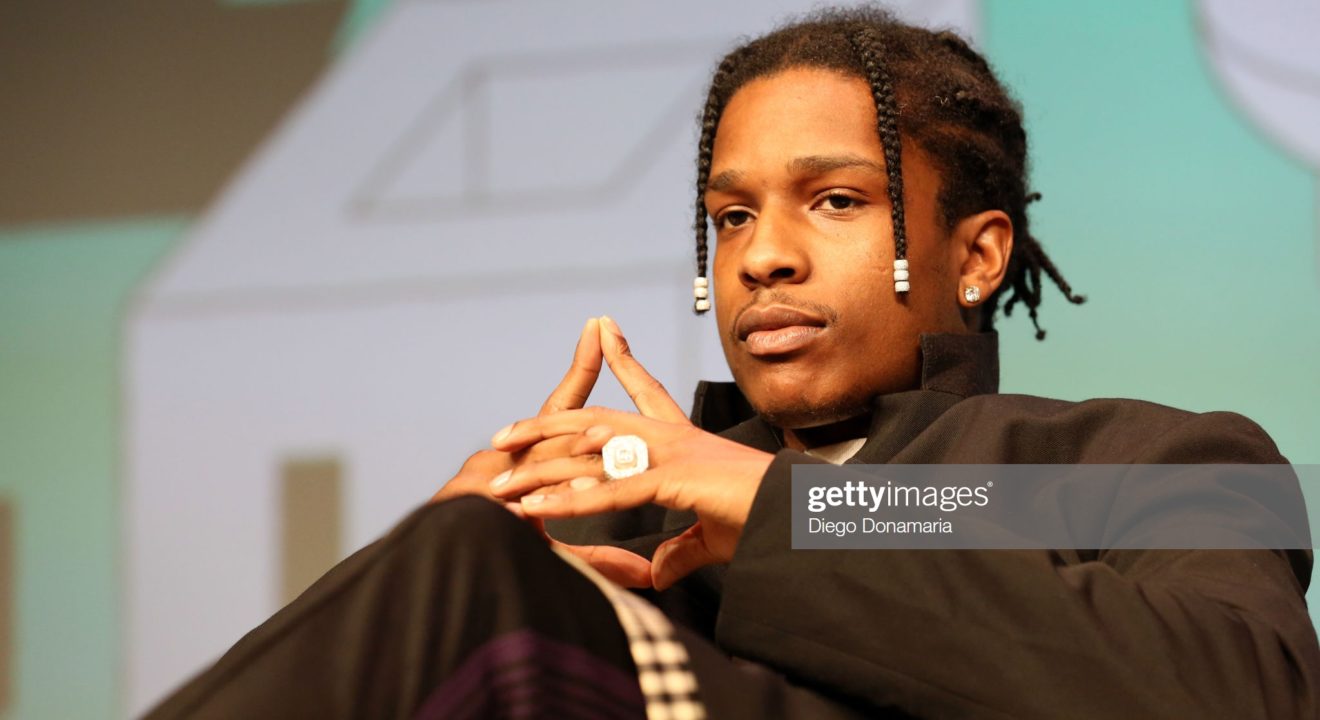

Since A$AP Rocky’s arrest in Sweden on July 2nd, 300 thousand people have signed a Change.org petition titled “Justice for Rocky.” #FreeRocky has spread like viral wildfire on Twitter and Instagram. The 30-year-old rapper has received waves of support from fans, activists, and fellow musicians. On Thursday, President Donald Trump tweeted that he would contact the Swedish Prime Minister about the rapper’s arrest.
I absolutely agree that Swedish officials wrongfully charged Rocky with “gross assault” and he should, therefore, be released. I saw the video of the altercation, and I think that he was provoked and acted in self-defense.
But, I also think we should consider his arrest in context with the corruption of our criminal justice system while reflecting on our own intentions, responsibilities, and actions.
Think: How could this fate happen to a successful, talented, and well-respected person? Why aren’t the waves of online support changing this fate? How genuine are these hashtags?
More importantly: where is this support for the other victims at the hands of our corrupt criminal justice system?
A$AP Rocky deserves justice, but so does every single black man wrongfully incarcerated in this country.
A$AP Rocky’s arrest, devastating as it may be, exists inside a vast cultural and historical context in our country. There are roughly 2.3 million people in the United States’ disparate systems of internment: state prisons, federal prisons, juvenile correctional facilities, local/county jails, immigration detention facilities, and so on. Moreover, people of color make up sixty percent of this prison population.
Wrongful incarcerations of black men and women, bolstered by our broken criminal justice system, are a mechanism to maintain racial subordination or the shameful roots of the United States.
“Like Jim Crow (and slavery), mass incarceration operates as a tightly networked system of laws, policies, customs, and institutions that operate collectively to ensure the subordinate status of a group defined largely by race.” -Michelle Alexander, The New Jim Crow: Mass Incarceration in the Age of Colorblindness
A$AP Rocky’s arrest should be a sobering reminder for us all. It’s devastating that an established, successful, and talented man is still subjected to this unfair punishment.
But if he wasn’t so successful, Kanye West would have never reached out to President Trump about this arrest. And I can safely assume that Trump, in his often problematic racial views, would not blink at this arrest if it were any other black man.
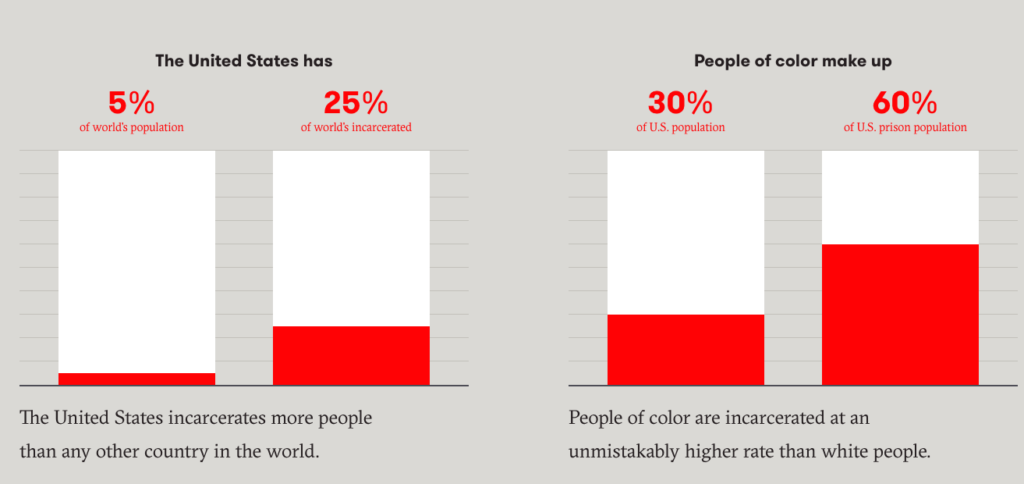
It’s not that A$AP doesn’t deserve the advocacy, but rather, that this wave of support feels disproportionate. Why aren’t we giving the same level of attention and advocacy to the staggering numbers of other wrongfully arrested black men and women in our country?
He should be exonerated, along with everyone else facing the same injustice, because he was wrongfully charged. However, A$AP Rocky’s popularity, particularly his status with white listeners, should not determine how much support he gets throughout this process, and certainly should not determine whether or not he gets released.
I remember chills running through my body when my American Studies Professor asked our class: “do you love hip-hop and rap as much as you love black people?”
Rap, in its roots, is a music of protest. I can’t tell you what to listen to and what to like. I do suggest if you’re a white fan of hip-hop, that you reflect on your own relationship to the community from which this music originated.
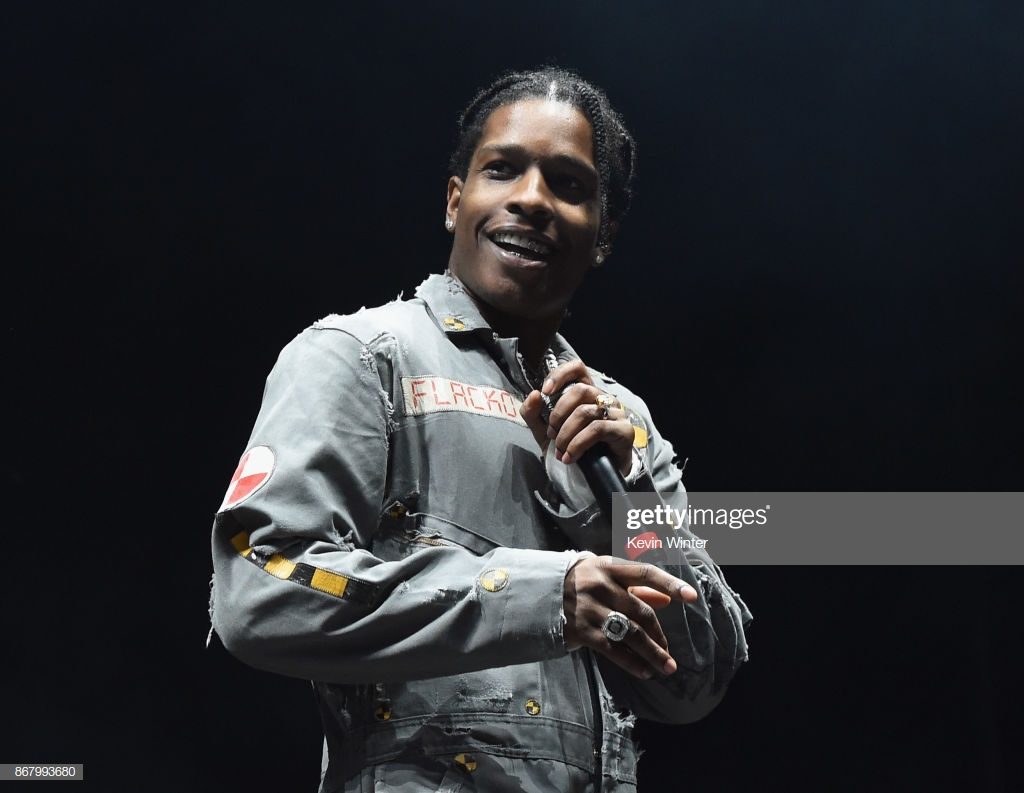

I don’t want to take a moral high ground here. I’m guilty, too. As a teenager, I reveled in the way that middle-aged white parents would look at me, driving my Mini Cooper with the bass of rap songs shaking my windows. Part of me loved rap then because I truly felt moved by the poetry, the emotion, and the subversiveness. But subconsciously, I knew that music of black culture would superficially separate me from my privileged suburban life. It would maybe even scare off my neighbors. But if those neighbors called the cops on me or my friends, an officer would simply tell us to get home to our parents before curfew. In twisted ways, I benefitted as a white-passing person from this music of protest, an expression of the pain and oppression inflicted on black people in our society.
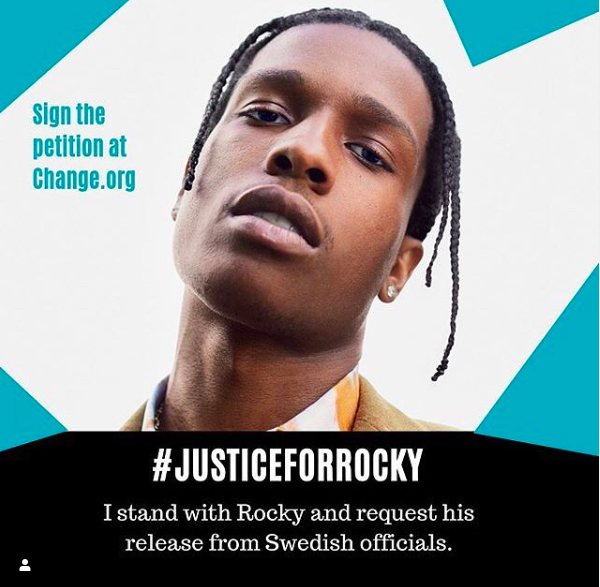

The pages of tweets with “#FreeRocky,” partnered with a prayer emoji or a sad face, read to me like crowds of people waving flags that say: “I’m Not A Racist!” And maybe you’re not racist, or you don’t mean to be. Your intentions are pure. I can believe that. But think about the amount of black culture that we consume, take for ourselves, and subsequently benefit from.
Before you tweet #FreeRocky, think: “am I supporting this artist as much as I support every other black person wrongfully arrested?”
How might you benefit from tweeting about A$AP Rocky’s arrest? By tweeting, you can remind the world that you like a rapper who grew up in Harlem living in and out of homeless shelters with an arrested father. You get to feel like you’re a part of something outside of yourself, outside of the world of privilege you might be living in.
A$AP’s presence at the forefront of pop culture, as an icon of fashion, music, and art, separates him from all the other wrongfully arrested black people in this country. This Medium article “Black Culture Is Cool, So Why Aren’t Black People?” mentions the ‘blackboard’ of people who we consider to be cool in our society. For instance, Michael Jordan, Beyonce, Kanye, Jay-Z, LeBron James, Oprah, to name some. In 2019, we could edit this list to include A$AP Rocky and plenty of other black artists.
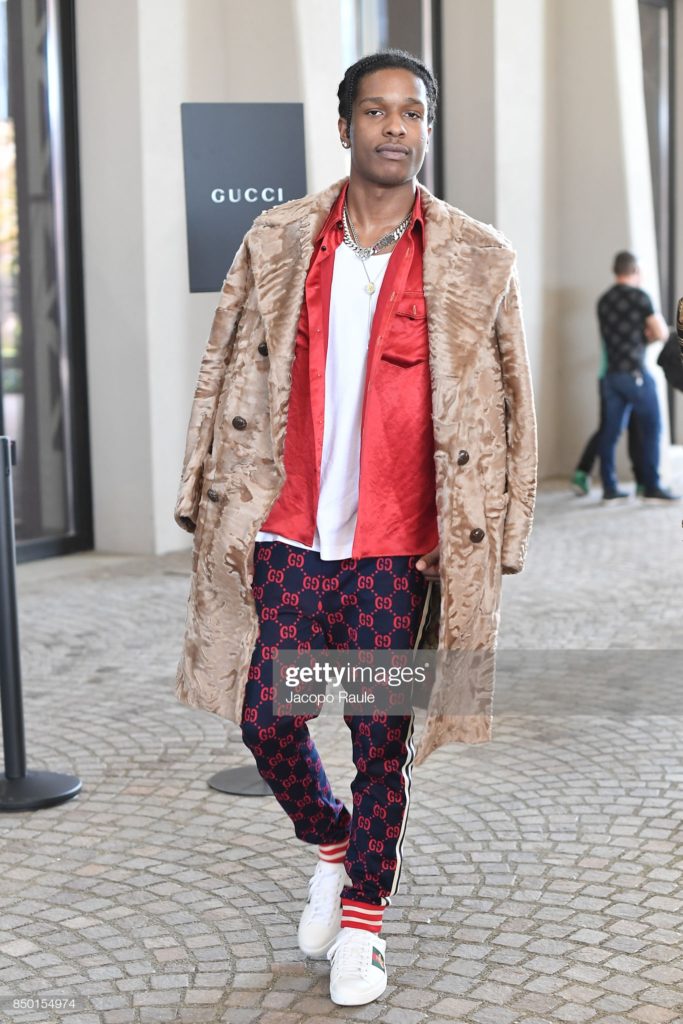

White mainstream media has approved of and adopted this list of people, enveloped them into a dominant culture. However, with certain limitations, of course.
Black culture is now pop culture. In the past few years, it feels like this exploitation has erupted everywhere at once. Kylie Jenner’s lips, influencers “blackfishing“, speaking in a “blaccent.” It’s a never-ending rabbit hole. Yet, appropriation is not a modern invention.
Throughout history, white people have dismembered black culture from black people, from its origins. Black culture then becomes up for grabs in a white mainstream media; we all consume it and benefit from it in some way. This process dates as far back as slavery, an institution serving as a catalyst for this appropriation:
“[The enslaved] trying to make something out of nothing while living in constant fear and danger was intriguing yet inaccessible for whites that were living alongside them. This phenomenon that whites were so close to this new culture that they were conditioned to stay so far from, not only established the recipe for cool culture in America but also initiated this bizarre, obsession with Black Culture that we see today.” – Gabriel Gutierrez, Black Culture Is Cool, So Why Aren’t Black People?
And now, in 2019, I believe that we have dismembered not just black culture. We have dismembered the black celebrity from black people. The concept of passing is as old as time. We might say that people like Oprah or Michael Jordan have “passed.” They don’t look white. They don’t have all the same privileges as a white person. Rather, they’ve passed because white people have ‘accepted’ them as a celebrity to further consume and feed off of their culture.
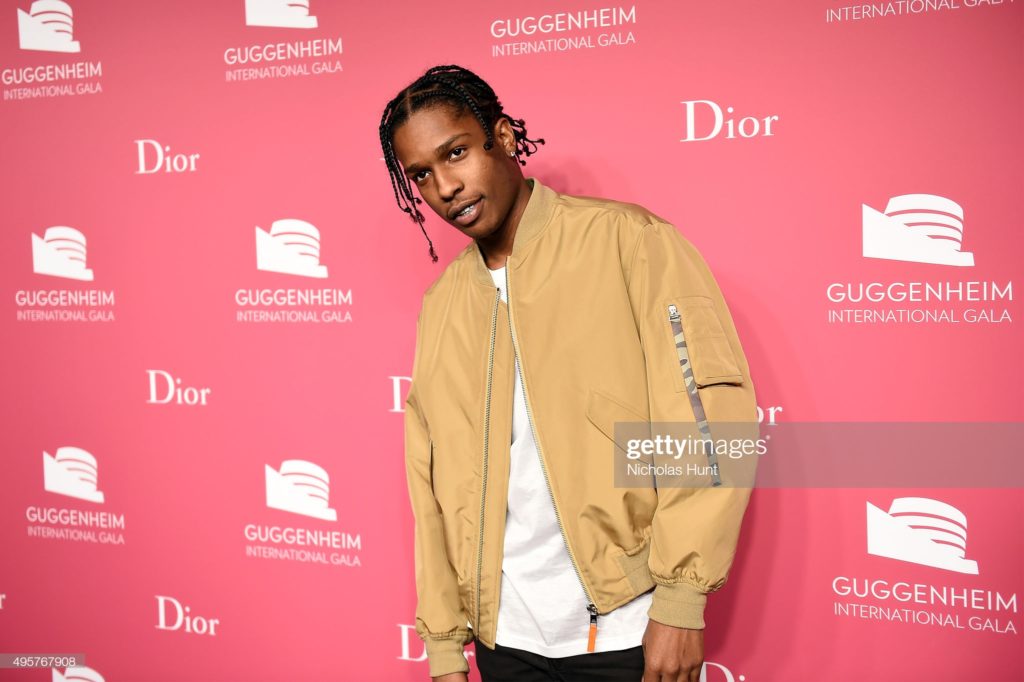

But A$AP Rocky’s arrest reminds us that this “passing,” this tokenization, is extremely surface level. Do people really want justice for this young man? Or, do they just want him back in America because they miss his ‘coolness’? His music, fashion, looks, all the things that white people consume?
Despite the support from fans, fellow rappers, and white pop-stars, A$AP Rocky is still arrested, still facing a discriminatory injustice. That’s the cold truth. White people might have accepted A$AP Rocky as a black celebrity, but clearly not as a black man. Or, a member of a race that they have historically and institutionally oppressed. If our culture really respected him and his race, then he wouldn’t be locked up in a Swedish prison cell.
I’m not asking people to stop tweeting “#FreeRocky.” In the end, I know that this support, however misguided or superficial, has a chance of helping him in his release.
But before tweeting #FreeRocky, I suggest that we all reflect on the roots of racial subordination in our country. That we reflect on the preservation of this subordination through our criminal justice system. As a country, we don’t respect and advocate for black people to the extent that we consume and benefit from black culture. That needs to change. Maybe that change starts internally, just by asking yourself “How can I be better?”
Want to take action? Look into the Equal Justice Initiative, The Sentencing Project, and the Vera Institute for more ways to get involved.
Sorry, no related posts found.